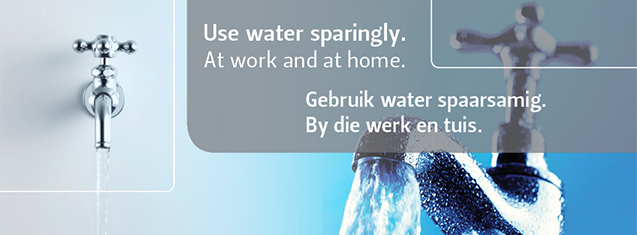Latest News Archive
Please select Category, Year, and then Month to display items
02 January 2025
|
Story Gerda-Marie van Rooyen
|
Photo Supplied
 Leading the research in South Africa is Prof Linus Franke from the Department of Soil, Crop and Climate Sciences.
Leading the research in South Africa is Prof Linus Franke from the Department of Soil, Crop and Climate Sciences.
Scientists are actively pursuing the successful breeding of diploid hybrid potatoes from inbred lines. This is expected to revolutionise potato breeding as it holds the key to rapid genetic progress. It will introduce new varieties for commercialisation through seed. Currently, existing potato variants have a gene that renders self-pollinated seeds infertile.
Prof Linus Franke, an academic in the Department of Soil, Crop and Climate Sciences at the UFS, is leading the research in South Africa. “This technology allows the production of genetically uniform potato seed that is easy to transport and largely disease-free.” He says this differs from conventional breeding whereby only vegetative propagation is possible due to tetraploid varieties in potatoes. It also risks carrying pests and diseases from one generation to the next – leading to the accumulation of pests and diseases with each round of multiplication.
Seed innovation
Prof Franke explains that Solynta BV, a seed company based in the Netherlands that produces potato varieties that can be grown from seed, has included South Africa in their research efforts because it is one of Africa’s largest producers and exporters. Through his academic relationship with Wageningen University and Research, a Dutch institution renowned for its agricultural endeavours and food production, the UFS became involved in researching hybrid potatoes grown from seed.
Diploid seeds containing two sets of chromosomes allow easier gene manipulation to increase predictability and speedier genetic progress. The breeding approach enables the incorporation of tolerance to pests, diseases, abiotic stresses (cold, heat, drought) and other desired genetic traits.
Although Prof Franke is optimistic about this research, he is not blind to disadvantages. “Potato seeds are tiny and have little energy reserves, making it harder to grow potatoes from seed than from tubers.” He says potatoes from seed will take longer to cultivate than tubers, as farmers need to grow plantlets from seeds first, adding six weeks to the growing period. “It is possible that commercial farmers can grow potatoes directly from seed. Alternatively, perhaps more likely, specialised growers will produce tubers of potatoes from seed; these tubers are then sold as seed tubers to other potato farmers, who then continue their normal practices of producing potatoes for the market from tubers.”
Financial benefits
Prof Franke says farmers have reason to get excited. “Seed potatoes will reduce input costs, as varieties with enhanced tolerance to pests and diseases require less pesticides. Planting one hectare of potatoes requires three to four tonnes of potato tubers, but only one 25 g packet of potato seeds.” Since potatoes are a more valuable commodity than maize, this technology might also increase farmers’ income potential.
Water use on campus
2015-12-14

Report water wastage on the campuses.
High temperatures and the fact that no rain was falling, puts pressure on the existing water supply. The Free State is one of the most arid areas in the country, and the province was also declared a drought area by the government.
It is therefore very important that the UFS community will use water sparingly – both where you live and in the workplace.
Report water wastage on the campuses by sending an email to news@ufs.ac.za or phone 051 401 3422.
Tips to use water sparingly in the workplace:
- Set up an inventory regarding water use and identifiable water management goals in your department. Control this to indicate progress.
- Keep a bottle of tap water in the fridge to avoid running the tap until the water is cold.
- Fill the kettle with water according to your needs.
- Sweep paving with a broom instead of washing it with water.
- Apply mulch to your garden, as it can reduce water use by up to 70%.
- Don’t rinse glasses and other dishes under running water. Plug the sink and reuse the water in the garden.
- Where possible, recycle water. Support projects making use of recycled water.
- When waiting for hot water to come out of the tap, place a bucket under the tap so that the cold water can be used later.
- Don’t let water run wild. Make sure all taps in the kitchen or bathroom are closed when leaving the office/residence.
Tips to use water sparingly at home:
- Showering can use up to 20 litres of water per minute. Take short showers, less than 5 minutes.
- Turn the tap off between washing your face, brushing your teeth or shaving
- Ensure that you have a full load of washing when using the washing machine.
Source: water tips: Rand Water, Bloem Water.